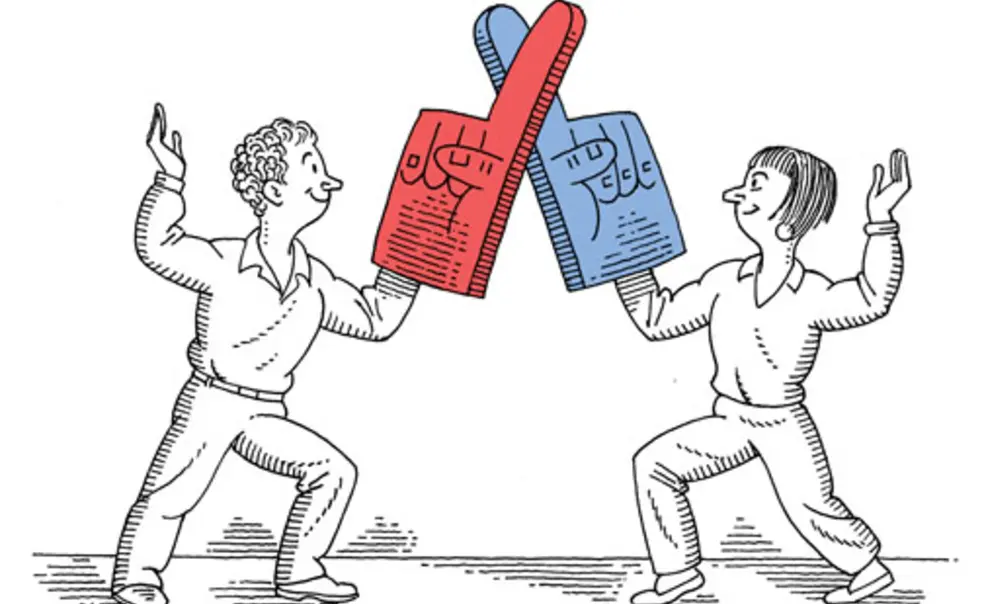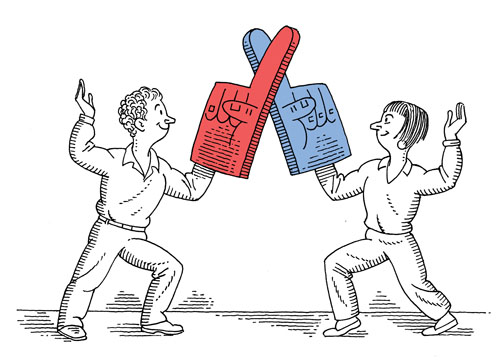Stirrings of interest in political campaign: Red vs. blue at debate; fall-break trips
The red fingers went up in Richardson Auditorium as Mitt Romney attacked President Barack Obama’s record on energy. The blue fingers came out when Obama took on deficit reduction.
More than 400 students, faculty, and staff showed up to watch the second presidential debate on a big screen three weeks before the election — invited to come in red or blue garb, and given their choice of a red or blue foam finger to cheer on a candidate.
Those sporting blue clearly outnumbered those in red, and they rose to their feet as Obama detailed his plans to reduce the deficit. There were cheers throughout the debate — but not a great deal of finger-waving — and the audience seemed more well-behaved than what was unfolding on the screen.
The event, sponsored by the College Democrats, College Republicans, Whig-Clio, and the class governments, was an attempt to break through the Orange Bubble that tends to insulate students from what’s happening off campus. Zachary Beecher, president of the Class of 2013, urged the audience to “get fired up” while noting the importance of “critically responding to what’s going on.”
Both the College Republicans and College Democrats were planning to send students to canvass potential voters in battleground states the week before the election, using fall break for its original purpose: to actively campaign for candidates. The Democrats planned to join Obama supporters in Florida, while the Republicans were joining Romney volunteers in Virginia.
The fall-break trips followed a period of little evident political activity on campus.
Natalie Sanchez ’14, president of the College Democrats, said she was disappointed by the lack of student enthusiasm, given the issues at stake. Neverthe- less, she noted, “Just because a student isn’t excited about one candidate, he is not necessarily politically apathetic.”
The president of the College Republicans, Jacob Reses ’13, said he also believed that there was a quiet interest in the campaign on campus. “When [students] sit down to talk about this stuff, they tend to be deeper conversations that are similar to the conversations that people all across this country are having,” he said.
During a panel discussion in September that examined political activism on the Princeton campus over time, President Tilghman conceded that often, “the Orange Bubble may be too thick — that what is happening outside ... isn’t having a big-enough impact on what is happening on campus.”
While students find ways to fight for political issues that they care most passionately about, such as education or immigration reform, Tilghman said, “the activism I see is not around electoral politics.”













No responses yet